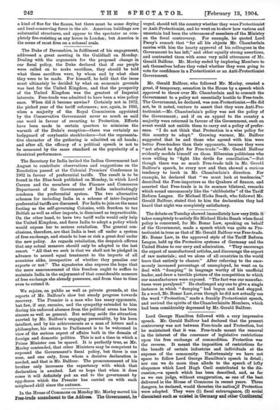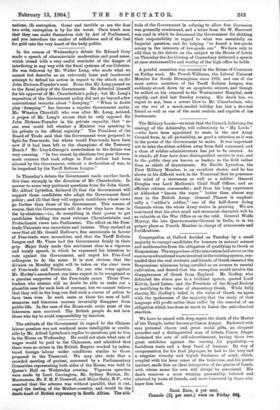Lord George Hamilton followed with a, very impressive speech. Mr.
Gerald Balfour had declared that the present controversy was not between Free-trade and Protection, but he maintained that it was. Free-trade meant the removal in the interest of the consumer of legislative restrictions upon the free exchange of commodities. Protection was the reverse. It meant the imposition of restrictions for the benefit of certain industries and individuals at the expense of the community. Unfortunately we have not apace to follow Lord George Hamilton's speech in detail ; nor can we do more than allude to the speech of lofty eloquence which Lord Hugh Cecil contributed to the dis- cussion,—a speech which has been described, and, as far as we can judge, without exaggeration, as one of the best delivered in the House of Commons in recent years. Three dangers, he declared, would threaten the nation:if Protection were adopted. They were (1) fiscal extravagance, (2) social discontent such as existed in Germany and other Continental'
nations, (3)- corruption. Great and terrible as are the first two evils, corruption is by far the worst. Once teach men that they can make themselves rich by Act of Parliament, and you introduce the canker of selfishness and of the lust for gold into the very heart of the body politic.







































 Previous page
Previous page